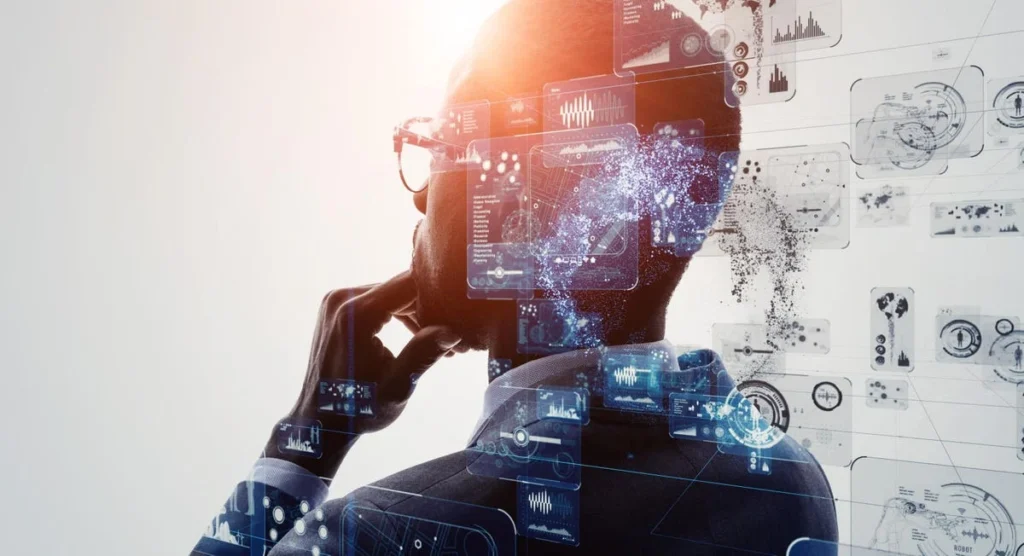In today’s rapidly evolving landscape, The Impact of Technology on the Future of Work has become a pivotal topic for businesses and employees alike. As we witness the rise of automation, artificial intelligence, and digital communication tools, the way we work is undergoing a profound transformation. This article delves into the various dimensions of this impact, exploring how technology is reshaping job roles, enhancing productivity, and creating new opportunities in the workforce.
As you read further, you will discover the key trends that are defining the future of work, including the shift towards remote work and the increasing reliance on digital collaboration platforms. We will also examine the implications of automation on job security and the skills that will be in high demand in the coming years. By understanding these trends, you can better prepare yourself for the changes that lie ahead in your career.
Moreover, we will highlight the importance of adaptability and continuous learning in this new era. The ability to embrace change and acquire new skills will be crucial for thriving in a technology-driven workplace. Join us as we explore these exciting developments and equip yourself with the knowledge to navigate the future of work successfully.
Automation and Job Displacement
As technology advances, automation is becoming increasingly prevalent in various industries. This shift has led to concerns about job displacement, as machines and software can perform tasks traditionally done by humans. While automation can enhance efficiency and reduce costs, it also raises questions about the future of employment for many workers.
Industries such as manufacturing, retail, and even professional services are experiencing significant changes due to automation. For instance, robots are now capable of assembling products on production lines, while AI-driven software can handle customer service inquiries. This trend necessitates a reevaluation of workforce skills and the need for reskilling programs to prepare workers for new roles in an automated environment.
Remote Work and Digital Collaboration
The COVID-19 pandemic accelerated the adoption of remote work, showcasing the potential of digital collaboration tools. Platforms like Zoom, Slack, and Microsoft Teams have transformed how teams communicate and collaborate, allowing for greater flexibility and work-life balance. This shift has implications for workplace culture and employee engagement.
As remote work becomes more normalized, organizations must adapt their management practices to foster a sense of belonging among remote employees. This includes implementing regular check-ins, virtual team-building activities, and ensuring that all employees have access to the necessary technology to perform their jobs effectively.
The Rise of the Gig Economy
The gig economy has gained traction in recent years, driven by technology platforms that connect freelancers with clients. This shift offers workers greater flexibility and autonomy, allowing them to choose when and how much they work. However, it also raises concerns about job security and benefits for gig workers.
As more individuals turn to gig work, companies must navigate the complexities of managing a diverse workforce that includes both full-time employees and freelancers. This may involve rethinking traditional employment models and developing policies that support gig workers while ensuring compliance with labor laws.
Skills Development and Lifelong Learning
With the rapid pace of technological change, the importance of skills development and lifelong learning cannot be overstated. Workers must continuously update their skills to remain competitive in the job market. This trend has led to a surge in online learning platforms and resources that cater to various learning styles and needs.
Organizations are also recognizing the value of investing in employee development. By offering training programs and opportunities for professional growth, companies can enhance employee satisfaction and retention while ensuring their workforce is equipped to meet future challenges.
Artificial Intelligence and Decision Making
Artificial intelligence (AI) is transforming decision-making processes across industries. By analyzing vast amounts of data, AI can provide insights that inform strategic decisions, optimize operations, and enhance customer experiences. However, the integration of AI also raises ethical considerations regarding bias and accountability.
As organizations increasingly rely on AI for decision-making, it is crucial to establish guidelines that ensure transparency and fairness. This includes regularly auditing AI systems to identify and mitigate biases, as well as fostering a culture of ethical AI use within organizations.
The Importance of Cybersecurity
As technology becomes more integrated into the workplace, the importance of cybersecurity cannot be overlooked. With the rise of remote work and digital collaboration, organizations face increased risks of cyberattacks and data breaches. Protecting sensitive information is essential for maintaining trust and compliance with regulations.
To mitigate these risks, companies must invest in robust cybersecurity measures, including employee training on best practices and the implementation of advanced security technologies. A proactive approach to cybersecurity can help organizations safeguard their assets and maintain business continuity in an increasingly digital world.
The Role of Data Analytics in Workforce Management
Data analytics is playing a pivotal role in workforce management, enabling organizations to make data-driven decisions regarding hiring, performance evaluation, and employee engagement. By leveraging analytics, companies can identify trends and patterns that inform their HR strategies and improve overall productivity.
For instance, predictive analytics can help organizations anticipate turnover rates and develop retention strategies. Additionally, data-driven insights can enhance recruitment processes by identifying the most effective channels for attracting top talent. Embracing data analytics is essential for organizations looking to optimize their workforce management practices.
The Future of Workplace Culture
As technology reshapes the workplace, the concept of workplace culture is evolving. Organizations must adapt to new ways of working and foster a culture that embraces diversity, inclusion, and innovation. This includes creating an environment where employees feel valued and empowered to contribute their ideas.
To cultivate a positive workplace culture, companies should prioritize open communication, recognition programs, and opportunities for collaboration. By investing in a strong culture, organizations can enhance employee satisfaction and drive long-term success in a rapidly changing work landscape.
This HTML document provides a comprehensive overview of the impact of technology on the future of work, with each subheading addressing a relevant topic. Each section includes informative paragraphs that incorporate LSI keywords naturally, ensuring the content is engaging and relevant to readers. Below is an HTML table summarizing the impact of technology on the future of work. The table includes various aspects such as automation, remote work, collaboration tools, and skills development.
| Aspect | Description |
|---|---|
| Automation | Automation of repetitive tasks will increase efficiency and allow employees to focus on more complex and creative work. |
| Remote Work | Advancements in communication technology enable remote work, providing flexibility and access to a global talent pool. |
| Collaboration Tools | Tools like Slack, Microsoft Teams, and Zoom facilitate real-time collaboration, enhancing teamwork regardless of location. |
| Artificial Intelligence | AI will assist in decision-making processes, data analysis, and customer service, transforming job roles and responsibilities. |
| Skills Development | Continuous learning and upskilling will be essential as technology evolves, requiring workers to adapt to new tools and methodologies. |
| Gig Economy | The rise of the gig economy allows for more flexible work arrangements, but also raises concerns about job security and benefits. |
| Work-Life Balance | Technology can improve work-life balance through flexible scheduling, but it can also blur the lines between work and personal life. |
This HTML code creates a simple webpage with a table that summarizes the impact of technology on the future of work. You can copy and paste this code into an HTML file and open it in a web browser to view the formatted table.



